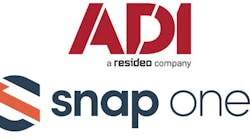We've seen a few ordinances over the last few years which require certain businesses to implement video surveillance systems. There was a case in Maryland which required strip malls to add video cameras to parking lots. Plenty of towns have required convenience stores to have video surveillance (no surprise there, since these retailers are often the target for late-night armed robberies, and CCTV just makes sense). Now I'm hearing about an ordinance in Williamsburg, Ky., which would require pawn shop operators to add video surveillance to their stores. That's not the shocking part, after all, pawn shops are commonly targets for the resale of stolen goods and sometimes are the target of armed robberies.
The curious part of this ordinance clearly isn't the video surveillance requirement; CCTV seems to be status quo these days and it's relatively inexpensive since retailers can pop over to a distributor like Super Circuits (or even a retailer like Wal-Mart or Sam's Club) and get a small camera system for next to nothing these days. No, the curious part of this ordinance is that it would require pawn shop operators to keep written records of what customers purchased which item. It's not stated, but the obvious point of this is that if a pawn shop sells a stolen item, the police could then find the final purchaser and recover the item.
This seems a bit backwards; would it not be better for the police to be checking for items while they are in the store before a third-party (the buyer) is involved? If a customer has to provide their full contact information and ID card just to purchase a set of old stereo speakers, is that requirement likely to negatively impact sales? And if the pawnshop would simply capture all the information of who sold the equipment to them (this is commonly recorded by pawnshops already) and install a quality video surveillance system which provides identification quality video, wouldn't this negate the need for recording retail customers' information? If those two things existed on the front-end of the acquisition (recording of seller's contact information and video capture of them), the law enforcement community would be able to catch thieves reselling the stolen goods, rather than impacting the life and privacy of some hapless pawn shop customer.
I'm sure there are more complexities to this ordinance and to this chain of information about the trafficking of used (and possibly stolen) goods, so please jump into my comments area and put in your two cents.
-Geoff

